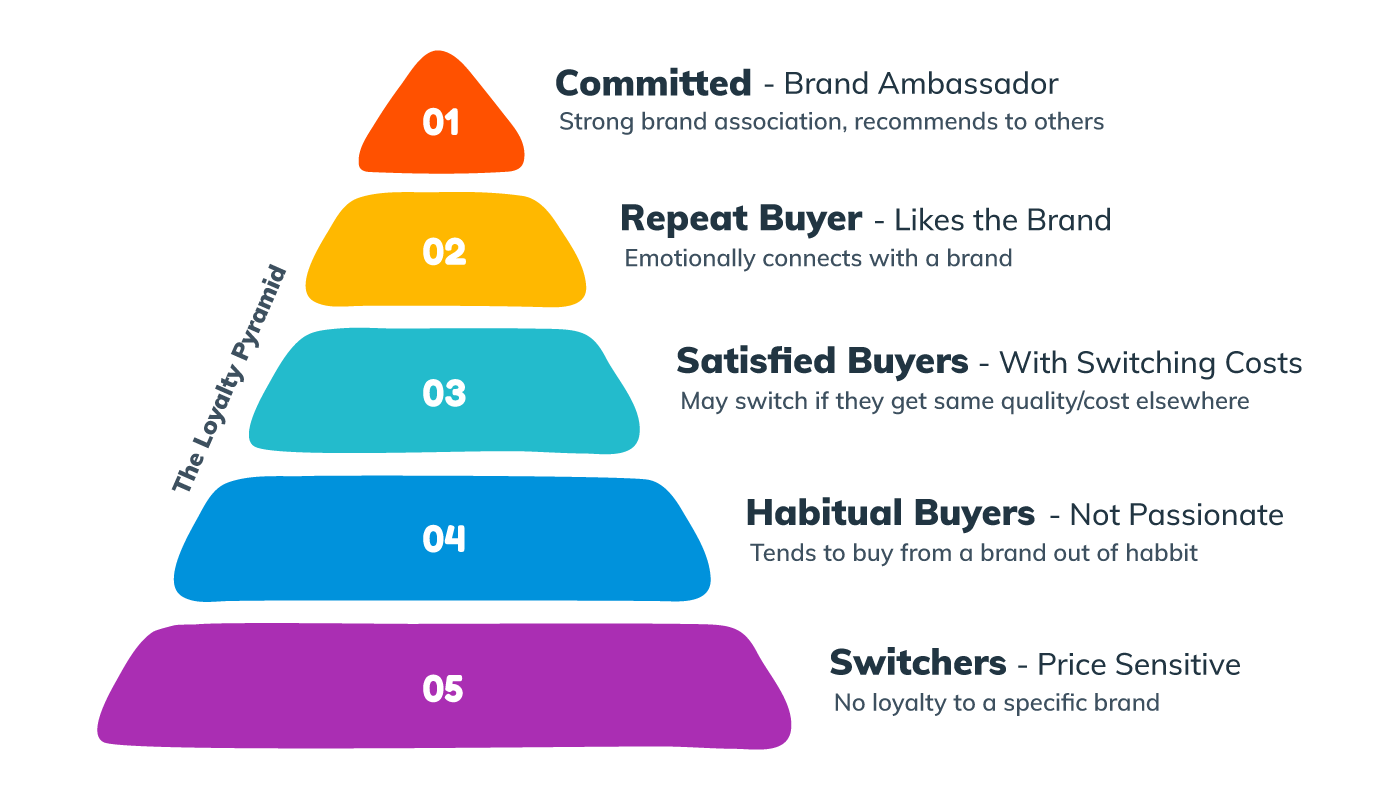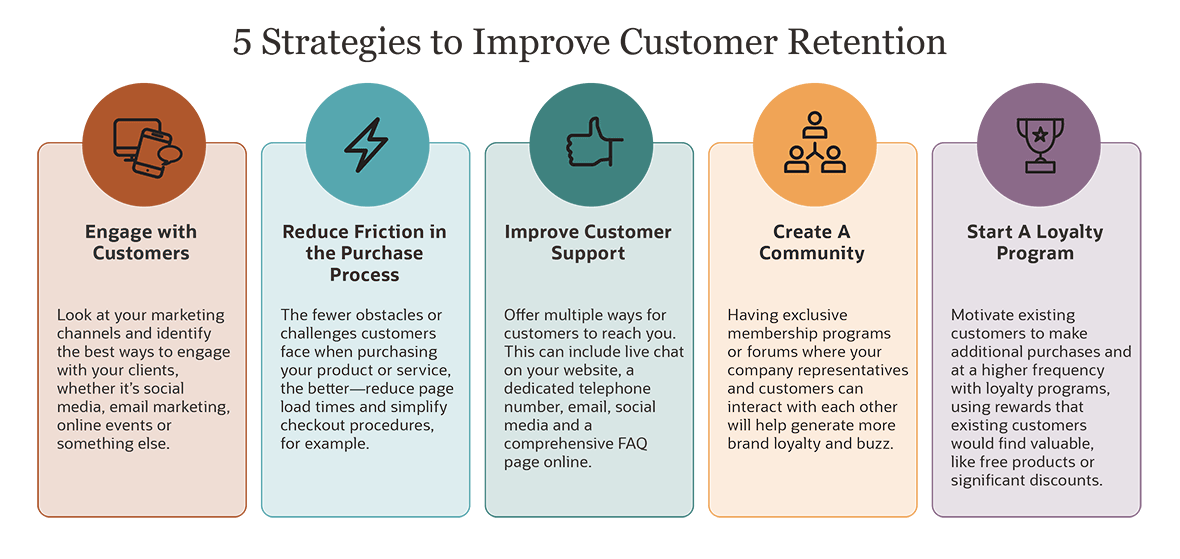Customer retention and loyalty are critical for long-term business success, and Customer Relationship Management (CRM) systems have emerged as powerful tools to achieve these goals. By centralizing customer data, CRM platforms enable businesses to understand their clients better, anticipate needs, and deliver personalized experiences.
These systems streamline communication, track interactions, and provide actionable insights to strengthen relationships. With features like automated follow-ups, targeted marketing campaigns, and performance analytics, CRM systems help businesses stay proactive in addressing customer concerns.
Ultimately, by fostering trust and satisfaction, CRM tools play a pivotal role in turning one-time buyers into loyal advocates, driving sustained growth and competitive advantage.
How CRM Systems Improve Customer Retention and Loyalty
Customer Relationship Management (CRM) systems play a pivotal role in enhancing customer retention and fostering loyalty by providing businesses with the tools to understand, engage, and serve their customers more effectively. These systems centralize customer data, enabling companies to deliver personalized experiences, anticipate needs, and resolve issues promptly. By leveraging CRM systems, businesses can build stronger relationships, increase customer satisfaction, and ultimately drive long-term loyalty.
1. Personalization Through Data Insights
CRM systems collect and analyze customer data, such as purchase history, preferences, and interactions, to create personalized experiences. This level of customization makes customers feel valued and understood, which significantly boosts retention. For example, a CRM can recommend products based on past purchases or send tailored offers on special occasions. This targeted approach not only enhances satisfaction but also encourages repeat business.
| Benefit | Impact |
|---|---|
| Personalized Recommendations | Increases customer engagement and repeat purchases |
| Tailored Communication | Builds emotional connection and trust |
2. Proactive Customer Support
CRM systems enable businesses to provide proactive customer support by tracking customer interactions and identifying potential issues before they escalate. For instance, if a customer frequently contacts support, the CRM can flag this behavior, prompting the company to reach out with solutions. This proactive approach not only resolves problems quickly but also demonstrates a commitment to customer care, fostering loyalty.
| Benefit | Impact |
|---|---|
| Issue Resolution | Reduces churn and improves satisfaction |
| Timely Follow-Ups | Enhances trust and reliability |
3. Loyalty Programs and Rewards
CRM systems facilitate the creation and management of loyalty programs, which incentivize customers to stay engaged with a brand. By tracking customer behavior, CRMs can identify high-value customers and reward them with exclusive offers, discounts, or points. These programs not only encourage repeat purchases but also create a sense of exclusivity and appreciation, strengthening customer loyalty.
| Benefit | Impact |
|---|---|
| Exclusive Rewards | Encourages repeat business |
| Customer Segmentation | Targets high-value customers effectively |
How does CRM improve customer relationships?
Centralized Customer Data Management
CRM systems improve customer relationships by centralizing all customer data into a single platform. This allows businesses to access and manage customer information efficiently, ensuring that every interaction is informed and personalized. Key benefits include:
- Easier tracking of customer interactions across multiple channels.
- Improved accuracy in customer data, reducing errors and misunderstandings.
- Enhanced ability to segment customers based on behavior, preferences, and history.
Personalized Customer Interactions
CRM tools enable businesses to deliver personalized experiences by leveraging customer data. This personalization fosters stronger relationships and increases customer satisfaction. Key advantages include:
- Tailored communication based on customer preferences and past interactions.
- Timely follow-ups and reminders, ensuring customers feel valued.
- Customized offers and recommendations that resonate with individual needs.
Streamlined Communication and Collaboration
CRM systems enhance internal communication and collaboration, ensuring that all team members are aligned in their efforts to improve customer relationships. This leads to a more cohesive and efficient customer service experience. Key features include:
- Shared access to customer information across departments, reducing silos.
- Automated workflows that ensure timely responses and consistent communication.
- Integration with other tools, such as email and social media, for seamless interactions.
How to build customer loyalty in CRM?

Understanding Customer Needs and Preferences
Building customer loyalty in CRM begins with understanding customer needs and preferences. By analyzing customer data, businesses can identify patterns and trends that reveal what customers value most. This information allows companies to tailor their offerings and communication strategies to meet customer expectations effectively. Key steps include:
- Collecting and analyzing customer feedback through surveys, reviews, and social media interactions.
- Segmenting customers based on demographics, purchase history, and behavior to create personalized experiences.
- Using CRM tools to track customer interactions and preferences, ensuring consistent and relevant communication.
Delivering Exceptional Customer Service
Exceptional customer service is a cornerstone of building loyalty. Customers are more likely to remain loyal to a brand that consistently provides prompt, helpful, and empathetic support. To achieve this, businesses should focus on:
- Training customer service teams to handle inquiries and complaints efficiently and professionally.
- Implementing omnichannel support to ensure customers can reach out through their preferred communication channels.
- Resolving issues quickly and following up to ensure customer satisfaction.
Rewarding Loyalty Through Incentives
Rewarding customers for their loyalty is an effective way to encourage repeat business and strengthen relationships. Loyalty programs and incentives can make customers feel valued and appreciated. Strategies to implement include:
- Creating a points-based loyalty program where customers earn rewards for purchases or engagement.
- Offering exclusive discounts, early access to sales, or special promotions for loyal customers.
- Personalizing rewards based on individual customer preferences and purchase history.
How CRM impacts customer acquisition and retention?

How CRM Enhances Customer Acquisition
Customer Relationship Management (CRM) systems play a crucial role in improving customer acquisition by streamlining processes and providing valuable insights. CRM tools help businesses identify potential customers, track interactions, and personalize marketing efforts. Here are three ways CRM impacts customer acquisition:
- Centralized Data Management: CRM systems store all customer data in one place, making it easier for sales and marketing teams to access and analyze information. This ensures that potential leads are not overlooked and can be targeted effectively.
- Improved Lead Scoring: CRM platforms use algorithms to score leads based on their likelihood to convert. This allows businesses to prioritize high-quality leads and allocate resources more efficiently.
- Personalized Marketing Campaigns: By analyzing customer data, CRM systems enable businesses to create tailored marketing campaigns that resonate with specific audiences, increasing the chances of acquiring new customers.
How CRM Boosts Customer Retention
CRM systems are equally important for retaining existing customers by fostering stronger relationships and improving customer satisfaction. Retention is often more cost-effective than acquisition, and CRM tools provide the necessary infrastructure to keep customers engaged. Here are three ways CRM impacts customer retention:
- Enhanced Customer Support: CRM systems allow businesses to track customer interactions and resolve issues quickly. This leads to higher satisfaction levels and encourages customers to stay loyal.
- Proactive Engagement: CRM tools enable businesses to anticipate customer needs and reach out proactively. For example, sending personalized offers or reminders can make customers feel valued and increase their loyalty.
- Feedback Collection and Analysis: CRM systems facilitate the collection of customer feedback, which can be used to identify areas for improvement. Addressing these issues helps retain customers by showing that their opinions matter.
How CRM Integrates Acquisition and Retention Strategies
CRM systems bridge the gap between customer acquisition and retention by providing a unified platform for managing both processes. This integration ensures that businesses can seamlessly transition from acquiring new customers to retaining them. Here are three ways CRM integrates these strategies:
- Unified Customer Profiles: CRM systems create comprehensive profiles that include data from both acquisition and retention efforts. This allows businesses to understand the entire customer journey and tailor their strategies accordingly.
- Automated Workflows: CRM platforms automate repetitive tasks, such as follow-ups and reminders, ensuring that no customer falls through the cracks. This consistency helps maintain relationships and improves retention rates.
- Data-Driven Decision Making: By analyzing data from both acquisition and retention activities, CRM systems provide actionable insights that help businesses refine their strategies and achieve better results.
What is customer retention in CRM?

Understanding Customer Retention in CRM
Customer retention in CRM (Customer Relationship Management) refers to the strategies and practices businesses use to maintain long-term relationships with their existing customers. It focuses on keeping customers engaged, satisfied, and loyal to the brand, rather than solely acquiring new customers. Effective customer retention helps businesses reduce churn rates, increase customer lifetime value, and foster brand advocacy.
- Customer retention involves analyzing customer behavior and preferences to deliver personalized experiences.
- It emphasizes building trust and loyalty through consistent communication and value delivery.
- CRM tools are used to track customer interactions, identify at-risk customers, and implement retention strategies.
Key Benefits of Customer Retention in CRM
Customer retention in CRM offers numerous advantages for businesses, including cost savings, increased revenue, and improved customer satisfaction. Retaining existing customers is often more cost-effective than acquiring new ones, as loyal customers are more likely to make repeat purchases and recommend the brand to others.
- Reduced marketing costs, as retaining customers requires less investment compared to acquiring new ones.
- Higher customer lifetime value, as loyal customers tend to spend more over time.
- Enhanced brand reputation, as satisfied customers are more likely to leave positive reviews and referrals.
Strategies for Improving Customer Retention in CRM
To improve customer retention, businesses must implement targeted strategies using CRM tools. These strategies focus on understanding customer needs, addressing pain points, and delivering exceptional service to foster loyalty.
- Personalized communication: Use CRM data to send tailored messages, offers, and recommendations.
- Proactive support: Identify and resolve customer issues before they escalate, using CRM analytics.
- Loyalty programs: Reward repeat customers with incentives, discounts, or exclusive benefits.
Frequently Asked Questions
How do CRM systems help in understanding customer behavior?
CRM systems collect and analyze customer data, such as purchase history and interaction patterns. This helps businesses identify preferences, predict needs, and tailor personalized experiences. By understanding customer behavior, companies can proactively address concerns, offer relevant solutions, and build stronger relationships, ultimately improving retention and loyalty.
Can CRM systems improve customer communication?
Yes, CRM systems centralize customer information, enabling consistent and timely communication across multiple channels. Automated tools like email campaigns and chatbots ensure personalized interactions. By maintaining regular and meaningful contact, businesses can foster trust, address issues promptly, and keep customers engaged, which strengthens loyalty.
How do CRM systems enhance customer satisfaction?
CRM systems streamline processes like complaint resolution and feedback collection, ensuring quick and efficient service. They also enable businesses to track customer preferences and deliver tailored offers. By meeting customer expectations consistently, businesses can enhance satisfaction, leading to higher retention rates and long-term loyalty.
What role do CRM systems play in loyalty programs?
CRM systems track customer interactions and purchases, allowing businesses to design targeted loyalty programs. By rewarding repeat customers with personalized incentives, businesses can encourage continued engagement. This data-driven approach ensures loyalty programs are relevant and effective, fostering stronger emotional connections with customers.

